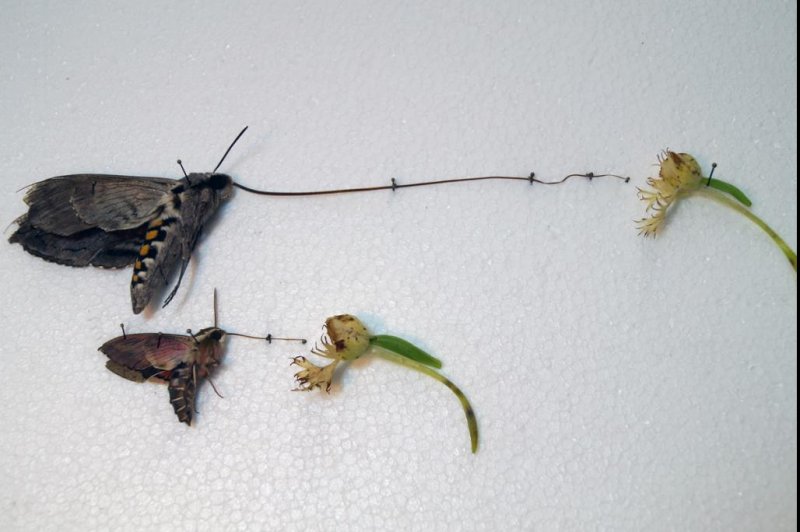The long tongues of hawk moths allow it to take nectar without getting pollen on its abdomen. Photo by Kirk Anderson/North Dakota State University
FARGO, N.D., Oct. 1 (UPI) -- Stealing nectar from a flower may sound like a joke, but for flowers and flower-lovers, it's no laughing matter.
Researchers at North Dakota State University say nectar larceny is threatening the endangered western prairie fringed orchid (Platanthera praeclara).
When entomologists set up net and light traps atop orchids, they caught two species of hawk moths and several bumblebee species, all of which were found guilty of stealing nectar from the rare orchids.
Hawk moths have especially long tongues capable of navigating the orchid's tube without getting pollen on its body. When a pollinator backs out of its deal with its food sources -- taking nectar but not pollen -- scientists call it "thievery."
But while hawk moths thieve, bees rob. Researchers found slits and holes in the sides of orchids, suggesting bees are accessing the flower's nectar via vandalism. Though bees may leave their feast with some pollen on their abdomens, the damage from their repeated break-ins ultimately kills the orchid. Scientists call this "robbery."
Researchers say more work is needed to determine how much nectar thieves are truly to blame for the orchid's decline.
If hawk moths are causing significant harm, it could be bad news for the western prairie fringed orchid, as warmer temperatures extend the hawk moth's range farther north.
"We propose that nectar larceny will negatively impact the orchid if it occurs at higher levels each year (in the case of robbery) or starts occurring every year due to increased northward migration of long-tongued hawk moths that typically live in the south (in the case of thievery)," Marion Harris, a professor at North Dakota State, said in a press release.
Harris and his colleagues published their latest findings on nectar-stealing in the Annals of the Entomological Society of America.















